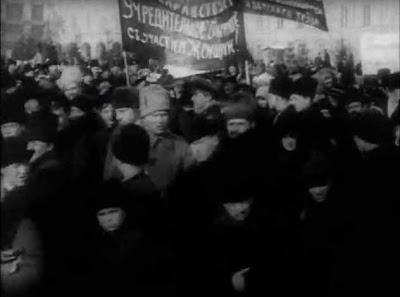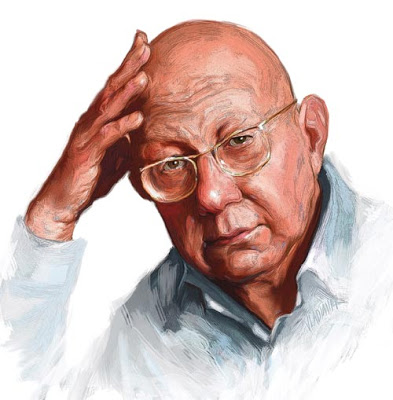This is a further instalment, in English, of Marxisme et Teorie Revolutionnaire byCornelius Castoriadis (Paul Cardan). The original French text appeared between 1961 and 1964) in issues 36-40 of the now defunct journal Socialisme ou Barbarie. Published in English by Solidarity London in 1966 (vol. IV, no.3) under the title ‘The fate of Marxism’.
The Marxist theory of history claims in the first place to be scientific, i.e. to be a generalisation susceptible to validation or challenge at the level of empirical research. As a scientific theory, which it undoubtedly is, it was inevitable that it should share the fate of every important such theory. Having produced an enormous and irreversible upheaval in our way of looking at the historical world, it is itself overtaken by the research it has unleashed and must find its place in the history of theories. This does not minimise what it bequeaths. One can say then, like Che Guevara, that is it no more necessary today to proclaim that one is a Marxist than it is necessary to assert that one is a Pasteurian of a Newtonian – provided we know exactly what we mean thereby. Everyone is a Newtonian, in the sense that nobody would return to the way of posing problems, or to the categories people used before Newton. But at the same time, no one is really a Newtonian, for one can just go on defending a theory that is purely simply false. (1)
But at the roots of the Marxist theory of history there is a philosophy of history profoundly and contradictorily woven into it, and itself, full of contradictions as we shall see. This philosophy is neither ornament nor complement: it is the very foundation of the theory. It is just as much the basis of how Marxism looks at past history as of its current political conceptions and of its perspectives and programme for revolution. The essential thing is that it is a rationalist philosophy. And, like all rationalist philosophies, with the answers to all the problems it raises.
Objective rationalism
The Marxist philosophy of history is first and foremost an example of objective rationalism. We see it already when Marxism seeks to tackle the past. The object studied is seen as a natural object: the model applied to it is analogous to models drawn from the natural sciences. Forces, acting at defined points, produce predetermined results according to a great schema of causality which has to explain the statics of history as well as its dynamics, the structure and the functioning of each society well as the instability and upheavals that will lead history to produce new forms. Past history is thus rational, in the sense that everything that happened in it happened in accordance with perfectly adequate causes, penetrable by our reason, as it stood in 1859. According to this theory, the real is perfectly explicable. In principle, it is already explained. (One can write monograms on the economic causes of the birth of Islam in the 7th century: these will ‘verify’ the materialist conception of history but will teach us nothing about it.) Humanity’s past conforms to reason. Everything in it has a definite reason, and together there reasons constitute a coherent and exhaustive system.
But future history is just as rational. It will carry reason into effect, and this time in a second scene: in the sense not only of the fact itself but of the value attached to it. Future history will be what it ought to be. It will witness the birth of a rational society which will embody aspirations of humanity, where mankind will finally be human – that is its existence will coincide with its essence and its effective will realise its concept.
Finally, history is rational in a third sense: that of the link between the past and the future, of facts which will necessarily become values, of this set of blind quasi-natural laws which blindly generate the least blind situation of all: that of liberated humanity. The reason immanent in all things will produce a society miraculously in keeping with our own reason.
We can see, in all this, that Hegelianism is not really transcended. All that is real, and all that will be real, is and will be rational. That Hegel stops this reality and this rationality at the point in time when his own philosophy appears on the scene, while Marx prolongs them indefinitely what we say. It reinforces it. The empire of reason, which, in Hegel’s case, embraced (by a necessary speculative postulate) all that is already given, now extends to encompass all that can ever be given in history. The fact that what can be said now concerning the future becomes increasingly value the further one moves from the present is due to contingent limitations to our knowledge – and even more to the fact that today’s tasks are on today’s agenda and that they do not include ‘providing recipes for the socialist cookshops of the future’. But this future is already fixed in its principles: it will be liberty, just as the present is – and the past was – necessity.
There is therefore a ‘Cunning of Reason’, as old Hegel used to say. There is a Reason at work in history which ensures that past history is comprehensible, that future history is desirable, and that the apparently blind necessity of facts is secretly arranged in such a way as to give birth to what is good.
Just stating this idea is enough to shed light on the extraordinary number of problems which it masks. We can only deal with some of them, and briefly.
Determinism
To claim that past history is comprehensible, as does the marxist conception of history, is to say that there exist in history a casual determinism without ‘important’ exceptions. (2) It is also to claim that this determinism carries – at one remove, so to speak – meanings linked together in totalities which are themselves barers of meaning. Neither of these ideas can be accepted without discussion.
We certainly cannot think of history without reference to the category causality. Contrary to what the idealist philosophers said, history is the area par excellence where causality makes sense to us: for it assumes there, at the very outset, the form of motivation. We can therefore understand the ‘casual’ concatenation in it, something we can never do in the case of natural phenomena. An electric current makes the bulb grow. The law of gravity causes the moon to be in such and such a place in the sky at such and such time. There are, and for us will always remain, external connexions: necessary, predictable, but incomprehensible. But if A treats on B’s toes, B swears at him, and A responds with blows, we understand the necessity of the links even if we consider them contingent. (We can reproach the participants for having less themselves be carried away when they should have controlled themselves – while we know all the time, from our own experience, that at certain moments one cannot stop oneself from being carried away.) More generally, we constantly think and act out our lives (and envisage that of others) in terms of causality – whether it be in terms of motivation or of the choice of the indispensable technical means; whether it be that the conditions of its achievement or whether it be that there are inevitable, even in unwanted, effects from one’s actions.
The casual exists in social and historical life because there is ‘a subjective rationality’: the deployment of Carthaginian troops at Cannes (and their victory) flows from a rational plan devised by Hannibal. The casual also exists because there is an ‘objective rationality’, because natural casual relations and purely logical necessities are constantly present in historical conditions, steel production and coal extraction stand in a constant and quantifiable relationship to one another (more generally, in a functional relationship). And there is also a ‘raw causality’ which we can perceive without being able to reduce it to subjective or objective rational relationships. There are established correlations of which we do not know the foundations, regularities of behaviour, individual or social, which remain just facts.
The existence of these casual relations of various kinds allows us – beyond a simple understanding of the behaviour of individuals and of its regularity – to gather these behaviour patterns together into ‘laws’ and to give to these laws an abstract expression, from which the ‘real’ content of the behaviour of living individuals has been eliminated. These laws can then provide a basis for satisfactory predictions (verifiable to a given degree of probability). For example, there is in the economic functioning of capitalism an extraordinary number of observable and measurable regularities. As a first approximation we may call them ‘laws’. They ensure that in many of its aspects this functioning seems both explainable and comprehensible and that it is, up to a point, predictable. Even beyond the economy, there are a number of partial ‘objective dynamics’. We find it impossible, however, to integrate these into a total determinism of the system, and that for reasons quite different from those that express the crisis of determinism in modern physics. It is not that determinism collapses or becomes problematic at the limits of the system, or that cracks develop in the latter. The opposite is rather the case: it is as if some aspects, some areas only of society where governed by determinism, while themselves bathed in a mass of non-determinist relations.
It is important to understand what this impossibility is due to. The partial dynamics which we establish are of course incomplete. They constantly refer to each other. Any modification of one modifies all the others. But if this gives rise to immense problems in practice it creates no difficulties of principle. In the physical world too relations are only valid ‘all other things being equal’.
The impossibility we are discussing does not stem from the complexity of the social material, it arises from its very nature. It seems from the fact that the social (or the historical) contain the non-causal as an essential ingredient.
This non causal appears at two levels. The first, which is the least important to us here, is that of deviations between the real behaviour of individuals and their ‘typical’ behaviour. This introduces an unpredictable element. But it would not, as much, prevent the problems from being tackled in a determinist way, at least at an aggregate level. If these deviations are systematic they can themselves be subjected to causal investigation. If they are random, they can be treated statistically. The unpredictability of the movement of individual molecules has not prevented the kinetic theory of gases from being one of the most rigorous branches of physics. It is in fact this very individual unpredictableness which generates the extraordinary power to theory.
But non-causal also appears at another level, and it is this one which is important. It appears not simply as unpredictable behaviour but as creative behaviour, the creative behaviours of individuals, groups, classes, whole societies. It asserts itself not as a simple deviation from the prevailing type but as the position of new behaviour patterns, as theinstitution of new social rules, as the invention of new object or forms – in short, as an emergence or creation which cannot be deduced from what was there before, as a conclusion which exceeds the premisses or as a positing of new premisses. It has already been noted that living being go beyond the realm of simple mechanism because they are capable of giving new answers in new situation. But the historical being exceeds the merely biological (or living) being because he can give new responses to the same situations, or create new situations.
The chain of meanings and the “cunning of reason”
Beyond the problem of determinism in history lies the problem of ‘historical’ significations. In the first instance history appears as the scene of conscious actions of conscious being. But this obviousness collapses as soon as we examine it more closely. We then find, with Engels, that ‘history is the realm of conscious intentions and unwanted ends’. The real results of historical action are prectically never those which their performers had intended. That isn’t, perhaps, so hard to understand. What creates a central problem is that these results, which no one had wanted as such, present themselves as ‘coherent’ in a certain way. They posses a ‘signification’ and seem to obey a logic which is neither a ‘subjective’ logic (carried by consciousness, or posited by someone), nor an ‘objective’ logic, like the one we believe we detect in nature. We shall call it an historical logic.
Hundreds of bourgeois, visited or not by the spirit of Calvin, or stuck by notions of this-wordly asceticism, begin to accumulate. Thousands of ruined craftsmen and starving peasants find themselves available to enter the factories. Someone invents a steam engine, someone else a new weaving loom. Philosophers are physicists seek to conceptualise the universe as a gigantic machine and to discover its laws. Kings continue to impose their authority on – and simultaneously to emasculate – the nobility. They create national institutions. Each of the individuals and groups in question pursues his own ends. No one aims at the social totality as such.
The result however is of a quite different order: it is capitalism. It is quiet immaterial in this context, that the result might have been totally determined by the causes and conditions, taken as a whole. Let us admit for the sake of argument, that one can show for each of these facts (up to and including the colour of Colbert’s breeches) all the multi-dimensional causal connexions linking them to one another, and linking all of them to the ‘initial conditions of the system’. What is important here is that their outcome has a coherence which no person or thing wanted or could guarantee to start with – or subsequently. The result has a signification (or another appears to embody a virtually inexhaustible system of significations), so that there is well and truly a sort of historical entity that is the capitalist system.
This signification appears in many ways. Through all the causal connexions and beyond them it confers a sort of unity upon the features of capitalist society and enables us to recognise immediately, in a particular phenomenon, a phenomenon of this culture. It allows us immediately to classify as belonging to this period objects, books, instruments, phrases of which we might know nothing else, and to exclude from this culture, just as immediately, a host of other objects. It appears as the simultaneous existence of an infinite set of possibilities, and of an infinite set of impossibilities given, so to speak, from the outset. It appears moreover in the fact that all which happens within might call the ‘spirit of the system’, but contributes to reinforce it (even when it opposes the system and seeks – at the limit – to overthrow it as a real order).
Everything happens as if this overall signification of the system was given, in some way, in advance, as if it ‘predetermined’ and over-determined the causal sequences and links, subjecting them to itself, compelling them to produce results compatible with an ‘intention’ which, of course, is no more than a metaphorical expression, given that it is no one’s intention. Marx says somewhere that ‘if there was no element of chance, history could be magic’ – a profoundly true phrase. But the astonishing thing is that chance itself, in history, takes on most of the time the form of meaningful chance, of ‘objective’ chance. The ‘by chance, no doubt’ of popular irony captures it very well. What is it that gives to the innumerable gestures, actions, thoughts, individual and collective behaviour patterns which make up a society this overall unity of a particular world, where a certain order (an order of meaning, not necessarily an order of causes and effects) can always be found woven into the texture of chaos? What gives great historical events that appearance, which is more than appearance, of an admirable thought out directed tragedy? At times it seems as if the obvious errors of the actors could not in any way stop the result being achieved; as if the ‘internal logic’ of the sired moment, the ‘stops’ and the ‘goes’, all the corrections and all the ;special effects’ necessary for the process to proceed to its conclusion. And at other times the actor, till now infallible, makes the one and only mistake in his life, in its turn indispensable to produce the ‘aimed at’ result.
This signification, already other than that actually lived through the particular acts of given individuals, poses, as such, an altogether inexhaustible problem. For the significant cannot be reduced to the causal. The significant builds up an order of concatenations which are separate from and yet inextricably woven into concatenations of causality. (…)
____________________________________________
1) Well and truly false, and not ‘an approximation improved by subsequent theories’. The idea of ‘successive approximations’, of an addictive accumulation of scientific truths, is meaningless 19th century Progressivism which still largely dominates the thinking of scientists.
2) Determinism only has meaning as total determinism: even the tone of the voice of a fascist demagogue or of a working class orator should flow from the laws of the system. To the extend that this is impossible, determinism takes refuge behind distinctions between what is ‘important’ and what is ‘secondary’. We are told that Clemenceau added a certain personal style to the policies of French Imperialism, but that style or no style, there policies would in any case have been ‘the same’ in their important aspects, in their essence. Reality is thus divided into a principal layer, where ‘essential’ things happen (and where causal connections can and must be established around the event considered) and a secondary layer (where such connections either don’t exist or don’t matter). Determinism can thus only fulfil itself by again dividing the world. It is only at the level of ideas that it aims at ‘one world’ – when applied, it is compelled to postulate a ‘non-determined’ part of reality.
the second part (link)
the third part (link)












